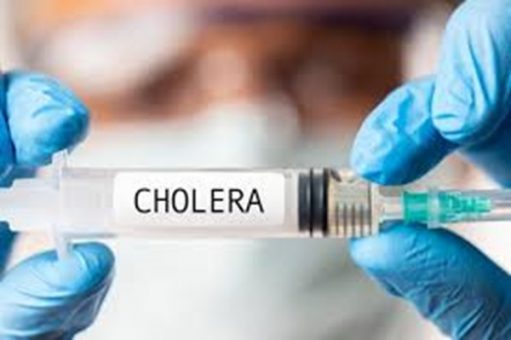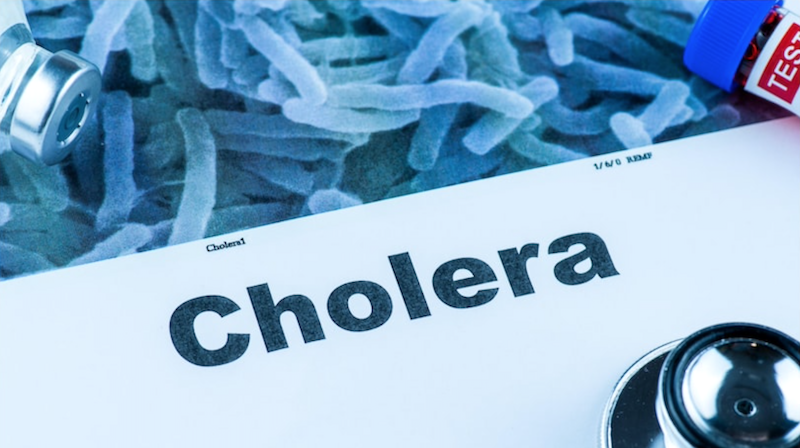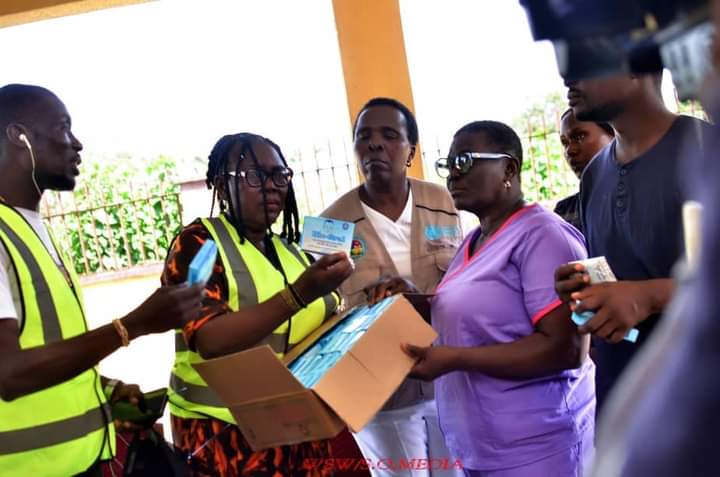The United States Agency for International Development (USAID) through its Lagos Urban Water, Sanitation and Hygiene (LUWASH) has awarded grants worth N1.72 billion to eight local organisations for interventions against cholera outbreak.
The grants were awarded to the organisations at a two-day signing and onboarding workshop on Monday in Lagos. The workshop was organised to officially launch the grant activities and provide relevant orientation for the new grantees.
The initiative was to support the state government’s effort to reduce cholera transmission, promote behavioural change and prevent future outbreaks.
The grants were awarded under the Capacity Building, Research, and Advocacy Fund (CAREVO Fund) to enhance the operational and outreach capacity of Community-Based Organisations (CBOs) that provide WASH services, with a focus on communities underserved by public utilities.
The organisations are: JAM Foundation, Equitable Health Access Initiative Nigeria, South Saharan Social Development Organisation, Humanity Family Foundation for Peace and Development.
Others are Women’s Right to Education Programme, Bread of Life Development Foundation, Society for Water and Sanitation, and Chamagne Foundation.
The Chief of Party and USAID contractor for LUWASH, Mr James Racicot, urged the awardees to positively employ the grants to achieve the LUWASH objectives.
Racicot noted that through the initiative, LUWASH aims to reduce cholera transmission, morbidity, and mortality rates in Lagos State.
He added that it would promote behavioural change to prevent communicable diseases and improve WASH facilities in low-income communities.
“We have no doubt that all of you will succeed with the proposals that you have submitted,” he said to the grantees,” he said.
He noted that the grantees were selected because they were going to help achieve the overall outputs and objectives of the LUWASH activity.
“So, we urge you, the grantee to take advantage of all the training and orientation that you will receive, because ultimately, we do not want to have issues with the management of the grants, but rather focus on the implementation and the success.
“The LUWASH Activity is very serious about engaging prominent, enthusiastic, CBOs in Lagos and Nigeria and we plan to do that over the next few years as well.
“The expectations for these organisations will feed into the LUWASH overall objectives of eradicating cholera outbreak in the Lagos State.
“So, the USAID LUWASH activity has several components, including working on the infrastructure for the water supply, governance, and support to the institutional stakeholders.
“But through the grants under contract programme, called the CAREVO fund, we are able to target specific needs that we have either seen recently or that has been on the ground for a few years,” Racicot said.
Some of the awardees, however, reiterated their commitments in ensuring the objectives of USAID/LUWASH objectives were met.
One of the awardees, Dr Mimidoo Achakpa of the Women’s Right to Education Programme, said her organisation would embark on increased advocacy to combat cholera outbreak with the grant.
“Basically, we are going to be working for different governments, meeting with the critical stakeholders, also building capacity and trainings and seminars to forestall cholera outbreaks.
“So, our basic message would be that let us work together to achieve the goal of LUWASH. We continuously engage the communities we are working with. We will leave no one behind in the advocacy and we believe we will be able to attain the objectives of the programme,” Achakpa said.
On his part, Mr Julius Akwashiki of JAM Foundation, another awardee, described the grant as an opportunity for his organisation to address feacal sludge in Lagos State.
“With our programme, we want to speed up faecal sludge treatment in Oregun, Lagos, through our faecal sludge treatment plant.
“We have realised that, over time, the faecal treatment plan has been left abandoned. It is an infrastructure that was built almost 60 years ago, and population had grown ever since then.
“So, our own intervention is to make sure that sludge treatment is being enhanced, so that what is being discharged into the environment that has caused this huge health burden in Lagos is being taken care of from the source.
“Definitely, accomplishing our project has been what we have been yearning for. We appreciate LUWASH for this opportunity,” Akwashiki said.
Another awardee, Dr Timothy Akinmurele of Equitable Health Access Initiative, said the grant was an opportunity to increase advocacy against cholera outbreaks across seven Local Government Areas (LGAs) in the state.
“Our project is called Communities Dimension for Addressing Cholera in Lagos through WASH. It is just targeted at seven affected LGAs in Lagos State, where we strategies to reach schools, marketplaces, motor parts and the communities with cholera prevention methods and commodities.
“We want to ensure that we are able to address the cause of cholera and ensure that it does not reoccur. LUWASH is a very impactful project in terms of developmental outcomes and addressing cholera, because it goes to the heart of the public, getting to the communities.
“It reaches to the communities to ensure that they understand what cholera is, what is causing it and also how to prevent it,” Akinmurele said.




